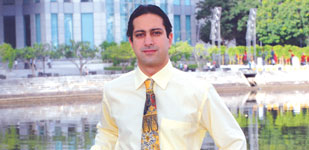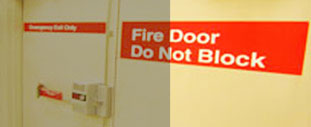

In Singapore, a number of Promat products recently received Green Eco Label certification from the Singapore Environment Council, attesting to the fact that these Promat products are considered environmentally friendly by the Singapore government’s Building & Construction Authority. The SEC’s General Manager, Mr Yatin Premchand, a US-educated and very articulate Environmental Science and Management expert recently talked with PTT about global warming, interconnected environmental issues with and what companies and people can do to help. Here are some excerpts from that long conversation.
Mr Yatin Premchand, GM of SEC: …the past seven years what I have been doing is very focused on industry development, business development, looking at and working with businesses to not only introduce the environmental elements of running an operation but also looking at the sustainability of business practice with a changing, say, an environmental economy, if you wish. It’s a different ball game now and the rules have changed and for businesses to take advantage of that and succeed, there has to be a change of not only mindset but also of governance and practice…so, for the past seven years that’s pretty much what I have been involved in…certifications, helping businesses to improve on their products, looking at, you know, practices and just different ways of addressing the same issue with a more efficient outlook.
YP/SEC: In Singapore, well, there’s basically two types of entities we have here…60-70% of our business is in the Small & Medium Enterprise (SME) sector…you know, there’s that whole chunk, and then there are the large local companies, the government-linked companies and the MNCs. So, in terms of looking at the different types of organisation or sizes of organisation, the MNCs are obviously driven by international objectives that are set from their headquarters. So in terms of the environment and all that, there’s a lot of work that they do internally…in terms of their own efficiencies, in terms of protocol, in terms of environmental management, resource conservation, energy efficiency, water efficiency, all those kinds of things including product innovation. But when you look at the government-linked companies and then look at the SMEs, I would say the SMEs have the hardest time because there is still the amount of capital that you (have to) inject to create environment awareness and change. It’s still a resource that you need to allocate and for an SME, for a small company to follow, for example, ISO 14000 as a management practice for environmental performance, it can be very expensive and therefore very hard for them to adopt. Local large companies, on the other hand, have adopted those kinds of standards, but again looking at Corporate Greening as a platform for business development, I think that is still something that’s in the works locally. There are quite a number of programmes that the (Singapore Environmental) Council has put out for assisting businesses to Go Green, whether that has to do with the greening of environment awareness within and practice within the organisation or whether it’s looking at how the organisation inter-reacts with the community that exists there, which also includes, obviously, its own workforce.
So basically there’s quite a number of programmes that we put out there that make it easier for businesses to adopt more environmentally friendly practices and therefore green their business from within. Of course, we do believe that we need the culture to be inherent before it (the green policy) moves into practice and the operations, so it has got to come from within the organisation.








